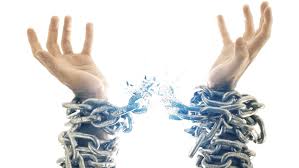If you’ve been passed over for a promotion at work or had a romantic partner cheat on you, you know how much it can sting. You may replay these events over and over in your mind and think about how to get back at those who’ve wronged you.
Thinking about grievances and revenge can be so consuming that it feels like an addiction, explains James Kimmel, Jr., J.D., psychology lecturer, co-director of the Yale Collaborative for Motive Control Studies, and author of the new book The Science of Revenge. And many people – though experts aren’t sure exactly how many – become addicted to ‘grievance-triggered revenge craving,’ he says.
Social media and the divisiveness that seems to permeate most aspects of our lives may be making the problem worse, Kimmel says. Think about social media posts that get under your skin… and how social media keeps serving up more of them for you.
‘We’re seeing in real time that revenge addiction and compulsive revenge seeking are absolutely becoming more prevalent as a result of this,’ Kimmel says. In addition, science has found that if you do actually get revenge, it’s not as sweet as you think it’s going to be.
Grievances refer to your real or imagined perspective of having been wronged or mistreated in a way that’s made you feel humiliated, shamed, or betrayed, Kimmel says.
Part of the reason grievances are so powerful is that feeling them activates the pain network in your brain, known as the anterior insula. ‘It’s a real pain that you’re experiencing. Pain throws the brain out of balance, and it wants to get back into balance,’ he says. It aims to rebalance itself by activating its pleasure and reward circuits, which trigger the release of dopamine.
This is where the cravings come in: you want more dopamine, which you get by thinking about revenge. Research has found that the process of developing a craving for revenge is similar to what happens with alcohol, drug, or sugar cravings.
‘It turns out humans get an enormous amount of pleasure and dopamine release from thinking about retaliating or seeking revenge against and inflicting pain upon the person who caused our grievance,’ Kimmel says.
But it doesn’t always stop there. This process can also shut down your self-control and executive function circuitry, part of your prefrontal cortex (also similar to other substance or behavioral addictions), he adds. So you might not be able to resist the urge to seek revenge or act on the revenge craving.
Grievances and a desire for revenge end up becoming something you become ‘hyper-focused on in a way that’s ultimately potentially dangerous or unhealthy,’ says Ryan Martin, Ph.D, a psychologist, anger expert, and dean of the College of Arts, Humanities and Social Science at the University of Wisconsin-Green Bay.
It’s gratifying to fantasise about getting revenge, Kimmel says. But less so to actually get it. While you might expect to feel pleasure when you punish someone who’s wronged you, research suggests it can have the opposite effect.
Actually getting revenge can be worse for you psychologically than just thinking about it. This may be because when you punish the offender, you keep thinking about them and struggle to move on. After gratifying your desire for revenge, you may feel angrier, regret, or fear of retaliation, Kimmel says.
‘When something happens, they essentially retell the narrative to themselves,’ Martin says. ‘If somebody does something to me and I get revenge, I can no longer tell myself that what they did wasn’t a big deal. It had to be a big deal; that’s why I got revenge. So I can no longer let go of what they did.’


Comments are closed.